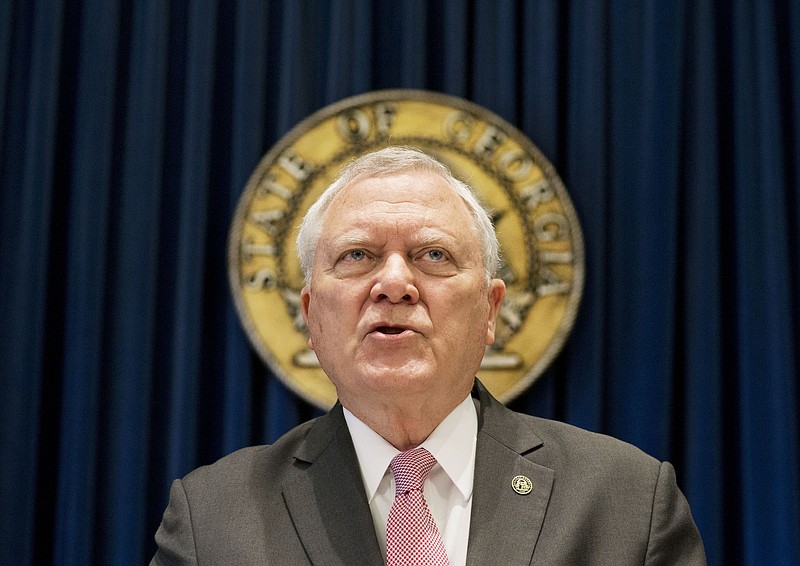Georgia Gov. Nathan Deal chose corporate business over religious business Monday in deciding to veto a bill that would protect faith-based organizations from having to violate their religious beliefs.
Instead, he heard the loud - though likely hollow - dollar-sign outcry from corporations such as Coca-Cola and Walt Disney Co. as well as the National Football League and Hollywood, which threatened to take their business elsewhere if faith-based organizations were allowed to deny services to those who violate the organization's "sincerely held religious beliefs" or fire employees who weren't in accord with those same religious beliefs.
Deal called the potential business losses "too great a risk to take" despite praising the state legislature for working to ensure House Bill 757 did not protect bigotry, as gay rights supporters said, and prohibited "invidious discrimination."
It is a shame common sense couldn't reign across the country when the first related argument was raised, with the first same-sex couple - who was told politely by a wedding vendor that gay marriage was against his religious beliefs - going to another vendor who felt differently. Now the Pandora's box allowing the trampling of religious beliefs across the country has been opened and shows no signs of being closed.
It didn't stop at wedding cakes and flowers, though, and for religious freedom opponents the argument was never about same-sex marriages or employees in faith-based organizations. It was and is about the injection of religion into the public square, period. Religious freedom opponents won't stop until houses of worship aren't tax exempt, "In God We Trust" comes off our coins and Catholic organizations have to pay for abortions for their employees.
On the surface, it just makes little sense that faith-based organizations be forced to serve people completely against what they hope to accomplish. What, then, is the role of faith if it is not allowed to be persuasive?
But many people, religious and not, understand that what's going on is the continued march toward the end of an America that had been in existence for more than 200 years - private business being told how it must operate, religious faith being not only mocked but silenced, and those with a small minority of beliefs dictating to those with a majority of beliefs.
So, while in one state, one bill in one legislative session was vetoed by one governor (and may or may not be overridden), this is an issue way beyond Georgia and is at the heart of the freedom we treasure.
